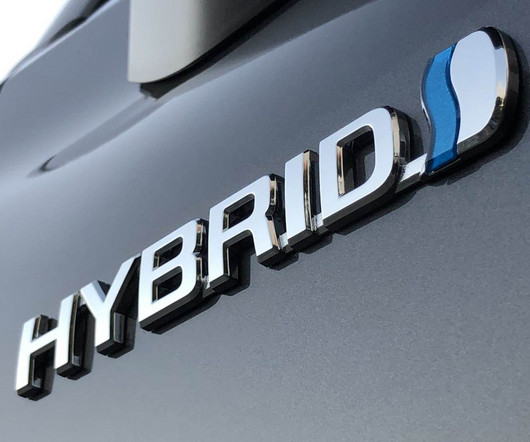Diesel market share in Europe drops below 50%; offset by increased gasoline engine sales; implications for climate targets
Green Car Congress
OCTOBER 1, 2017
of new car registrations in the first half of 2017, according to the European Association of Automobile Manufacturers (ACEA). One will provide the traditional benefits of efficiency and fuel economy, as in the current offer. Diesel’s market share in the EU-15 fell from 50.2%
















Let's personalize your content